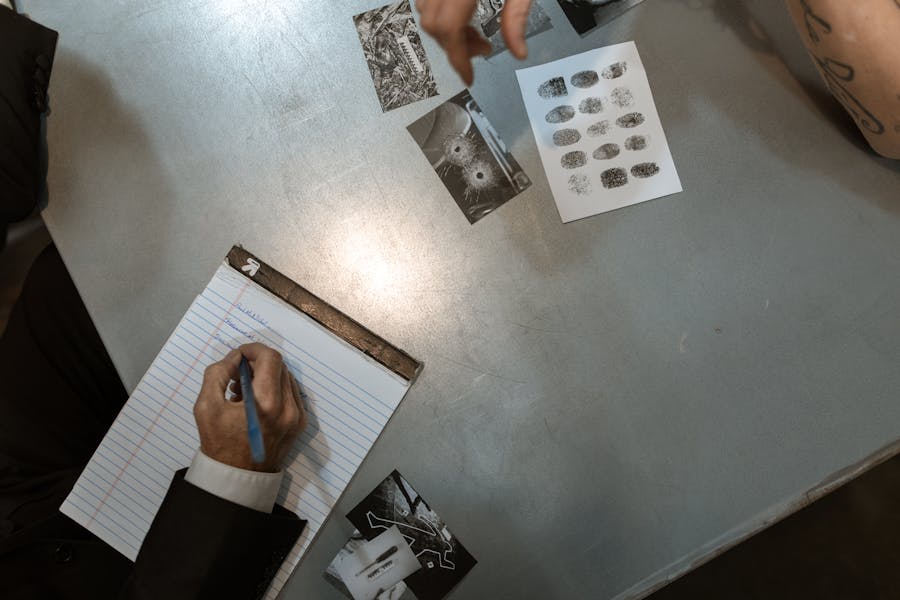Car accidents happen when you least expect them. In that stressful moment, it’s easy to overlook what needs to be done. Collecting the right documentation and evidence is one of the most important things you can do. In Laredo, you need to prove the negligence of the at-fault party if you want to secure compensation for your losses.
If you don’t document properly, insurance companies can deny your claim or give you far less than you deserve. So, consulting a Laredo car accident attorney to navigate your case is crucial.
In this article, we will discuss the importance of documentation and evidence after a car accident to make you aware.
To Prove Fault and Liability
When an accident happens, it’s often one person’s word against another’s. Proper evidence shows who caused the accident. Without it, you may get blamed for something that wasn’t your fault. For instance, if someone ran a red light and hit you, footage of security camera or a witness statement can prove the other person caused the crash.
To Support Your Insurance Claim
Insurance companies don’t just take your word for it. They need proof such as, photos, medical records, and repair bills. If you don’t have these, they may refuse to pay or offer much less money than you need. So, proper documentation strengthens your position and increases your chances of receiving a fair settlement.
Legal Protection
If the situation escalates to legal proceedings, having accurate and detailed evidence is crucial. Without it, you may find it challenging to prove your case in court. A lack of evidence could result in the loss of your case or a significantly reduced settlement. Additionally, if you are not at fault, thorough documentation can help protect you from false claims or wrongful accusations.
Protecting Your Rights
In some cases, those involved in an accident may attempt to manipulate or distort facts. Accurate and detailed documentation protects your side of the story, ensuring that no one takes advantage of your circumstances. It protects your rights and gives you a stronger negotiating position when dealing with insurers, lawyers, or other interested parties.
Medical and Financial Compensation
After a car accident, injuries, whether visible or hidden, can require medical treatment, rehabilitation, and time off work. Proper documentation of the accident and your injuries provides a record that supports your medical claims. This can be crucial for covering medical bills, lost wages, psychological effects, repair costs of your vehicle, and other costs associated with your recovery.
Types of Essential Documentation and Evidence
Here’s what you need to collect to protect yourself:
Police Reports
Always call the police after an accident, even if it seems minor. The police will create a report that includes:
Details about what happened
Information about the people involved
Statements from witnesses
This report is important because insurance companies trust it.
Photos and Videos
Take as many pictures as possible. Use your phone to capture:
Damage to all vehicles
Road conditions (like skid marks or traffic lights)
Your injuries, even small ones
The overall accident scene
Videos are also useful. They can show moving cars, the weather, or other details you might forget later.
Medical Records and Bills
Even if you feel fine, see a doctor after the accident. Some injuries, like whiplash, don’t show up right away. Medical records prove you were hurt, and bills show the cost of your treatment. If you skip this step, the insurance company might argue you weren’t injured.
Witness Statements
If anyone saw the accident, collect their contact information. Witnesses can help prove what happened, especially if the other driver tells a different story.
Repair Estimates and Receipts
Get an estimate for your car repairs from a trusted mechanic. Keep all receipts for repairs, towing, and rental cars. These show how much money you’ve lost because of the accident.
Communication Records
Keep copies of any emails, texts, or calls with insurance adjusters. This protects you in case they change their story later.
Conclusion
After a car accident, your actions matter. Collecting the right documentation and evidence protects you and helps you get the support you need. It may feel overwhelming at the moment, but staying calm and organized can make a huge difference in the days and weeks ahead.


